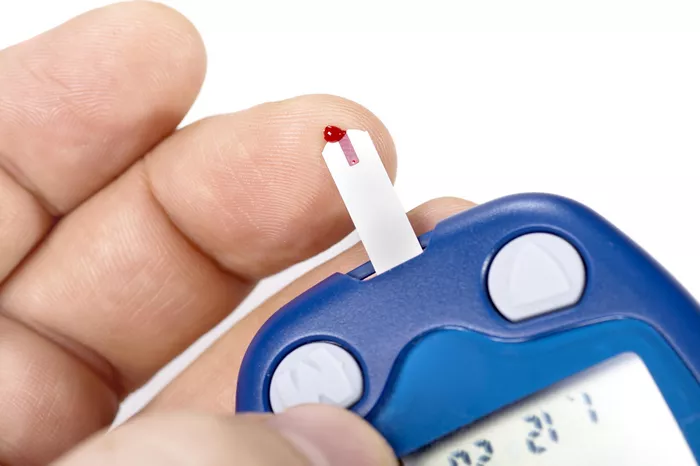When a person with diabetes falls ill, managing blood sugar levels can become particularly challenging. Illness can affect appetite, digestion, and insulin sensitivity, leading to potential complications if not managed properly. Therefore, it is crucial for individuals with diabetes to understand what foods are appropriate to eat when they are sick. This article will explore the best dietary choices for diabetics during illness, how to manage blood sugar levels, and practical tips to maintain health while recovering.
Understanding the Impact of Illness on Diabetes
Before delving into dietary recommendations, it’s essential to understand how sickness can affect diabetes management.
1. Stress Response
When the body is fighting an illness, it releases stress hormones such as cortisol and adrenaline. These hormones can lead to increased blood sugar levels.
Blood Sugar Spikes: Stress hormones promote glucose production in the liver, which can cause blood sugar levels to rise. This response is especially concerning for diabetics, who may already struggle with high blood sugar.
2. Changes in Appetite and Eating Patterns
Sickness often alters appetite and can cause nausea, vomiting, or diarrhea. These symptoms can make it difficult to consume regular meals.
Reduced Food Intake: Many individuals may not feel like eating, which can lead to low blood sugar levels, especially if they are on insulin or other diabetes medications.
3. Increased Risk of Dehydration
Fever, vomiting, and diarrhea can lead to dehydration, which can further complicate diabetes management.
Fluid Balance: Staying hydrated is vital for everyone, but for diabetics, it is crucial to maintain proper hydration to support overall health and metabolic processes.
4. Medication Adjustments
When sick, some individuals may need to adjust their diabetes medications. This is often necessary to manage blood sugar levels effectively during illness.
Consulting a Healthcare Provider: It is essential to consult with a healthcare provider before making any changes to diabetes medications during illness.
Nutritional Guidelines for Diabetics When Sick
When sick, it’s important for individuals with diabetes to focus on nutrient-dense foods that help maintain energy levels, support the immune system, and stabilize blood sugar levels. Here are some dietary recommendations:
1. Focus on Balanced Meals
When appetite allows, aim to consume balanced meals that include a combination of carbohydrates, protein, and healthy fats.
Carbohydrates: Choose complex carbohydrates, such as whole grains, legumes, and starchy vegetables, which provide a steady release of glucose into the bloodstream. These are preferable to simple carbohydrates found in sugary foods, which can cause spikes in blood sugar.
Proteins: Include lean protein sources such as chicken, turkey, fish, tofu, or legumes. Protein helps to maintain muscle mass, supports healing, and can help stabilize blood sugar levels.
Healthy Fats: Incorporate sources of healthy fats, such as avocados, nuts, seeds, and olive oil. These fats can provide energy and support overall health without causing significant spikes in blood sugar.
2. Stay Hydrated
Hydration is crucial during illness. Dehydration can occur from fever, vomiting, and diarrhea, which can worsen blood sugar control.
Water: Drinking plenty of water is essential. Aim for at least 8-10 cups per day, adjusting based on activity levels and the severity of the illness.
Electrolyte Solutions: Consider low-sugar electrolyte solutions or broths if experiencing vomiting or diarrhea. These can help replenish lost fluids and electrolytes without causing significant blood sugar spikes.
3. Incorporate Nutrient-Dense Foods
Focus on foods rich in vitamins, minerals, and antioxidants to support the immune system.
Fruits and Vegetables: Incorporate a variety of colorful fruits and vegetables. Foods like berries, spinach, kale, and citrus fruits are particularly beneficial due to their high vitamin C content and antioxidants.
Whole Grains: Opt for whole grains like brown rice, quinoa, and whole-grain bread. These foods are more nutrient-dense than their refined counterparts.
4. Manage Portion Sizes
During illness, it may be tempting to eat small amounts of high-calorie comfort foods. Instead, focus on portion control and balanced meals.
Smaller, Frequent Meals: If appetite is low, try consuming smaller, more frequent meals or snacks throughout the day. This can help maintain energy levels without overwhelming the digestive system.
Monitor Carbohydrate Intake: Pay attention to carbohydrate portions to prevent blood sugar spikes. Utilizing measuring cups or a food scale can help maintain appropriate portion sizes.
5. Choose Foods That Are Easy to Digest
When sick, some individuals may experience nausea or digestive issues. It is essential to select easily digestible foods that provide nutrition without causing discomfort.
Bland Foods: Foods such as bananas, rice, applesauce, and toast (often referred to as the BRAT diet) are typically well-tolerated and can be a good starting point.
Soups and Broths: Light soups and broths can provide hydration and essential nutrients without being too heavy on the stomach. Opt for low-sodium versions to avoid excess salt intake.
6. Avoid Sugary Foods and Drinks
While comfort foods may be tempting, it is crucial to avoid high-sugar options, as they can lead to rapid spikes in blood sugar levels.
Limit Sugary Snacks: Steer clear of candies, pastries, and sweetened beverages. Instead, opt for healthier alternatives like fruit or yogurt.
Read Labels: Always check labels for hidden sugars in foods, especially in pre-packaged or processed items.
Specific Dietary Considerations for Common Illnesses
Different illnesses may require different dietary approaches. Here are some considerations for specific conditions:
1. Cold and Flu
When dealing with cold or flu symptoms, it’s essential to focus on hydration and nutrition to support recovery.
Hydration: Increase fluid intake, including water, herbal teas, and broths. This helps relieve congestion and supports the immune system.
Nutrient-Rich Foods: Include foods rich in vitamin C, such as oranges and strawberries, as well as zinc-rich foods like nuts and seeds.
2. Gastrointestinal Illness
For conditions involving vomiting or diarrhea, such as gastroenteritis, dietary choices must focus on rehydration and gentle nutrition.
Rehydration: Consume oral rehydration solutions or clear broths to restore lost fluids and electrolytes.
Easily Digestible Foods: Stick to bland, low-fiber foods like white rice, boiled potatoes, and plain toast until symptoms improve.
3. Diabetes and Fever
When experiencing a fever, the body’s metabolic demands increase, which can affect blood sugar control.
Increased Caloric Needs: While it’s essential to eat to support the body, focus on nutrient-dense foods that provide energy without excessive sugar.
Small, Frequent Meals: Consider eating smaller portions more frequently to meet increased energy needs without overwhelming the digestive system.
4. Recovery from Surgery or Infection
After surgery or an infection, proper nutrition is vital for recovery.
Protein-Rich Foods: Prioritize protein to support healing. Foods like lean meats, fish, eggs, and legumes are excellent choices.
Antioxidant-Rich Foods: Incorporate a variety of colorful fruits and vegetables to provide antioxidants that support healing.
Monitoring Blood Sugar Levels
During illness, it is crucial to monitor blood sugar levels more frequently, as illness can significantly impact glucose control.
1. Increased Monitoring
Check blood sugar levels more often than usual, especially if experiencing symptoms like fever, nausea, or significant changes in appetite.
Keep a Log: Maintain a record of blood sugar readings to identify patterns and make necessary adjustments to medication or food intake.
2. Adjusting Medications
Consult with a healthcare provider regarding potential adjustments to diabetes medications during illness.
Insulin Needs: Some individuals may need to increase their insulin doses during illness due to increased blood sugar levels caused by stress hormones.
Oral Medications: Speak with a healthcare provider about adjusting oral diabetes medications, especially if appetite is significantly affected.
Practical Tips for Diabetics When Sick
Managing diabetes while sick can be challenging, but several practical strategies can help:
1. Plan Ahead
Before falling ill, prepare by having a stock of diabetic-friendly foods available.
Meal Prep: Prepare and freeze healthy meals that can be easily reheated during illness. This can save time and ensure proper nutrition when cooking is challenging.
2. Create a Support System
Engage family and friends to provide support during illness.
Communicate Needs: Let loved ones know about dietary preferences and needs to ensure they can help provide appropriate meals or snacks.
3. Stay Informed
Educate yourself about managing diabetes during illness.
Resources: Utilize reputable resources and guides on managing diabetes and illness. This knowledge can help make informed decisions.
4. Seek Medical Advice
Consult healthcare providers when feeling unwell, especially if blood sugar levels are difficult to control.
Professional Guidance: Do not hesitate to reach out for help if experiencing severe symptoms, as professional guidance can make a significant difference.
Conclusion
Managing diabetes during illness requires careful attention to dietary choices and blood sugar monitoring. It is vital to focus on nutrient-dense foods, stay hydrated, and monitor blood sugar levels frequently. Understanding the impact of illness on diabetes and implementing appropriate dietary strategies can help individuals navigate the challenges of being sick.
When sick, it is important to prioritize balanced meals, incorporate easily digestible foods, and avoid high-sugar options. By following these guidelines, individuals with diabetes can better manage their condition and support their recovery while maintaining optimal blood sugar control. Always consult healthcare professionals for personalized advice and support tailored to specific situations and health needs.
Related topics:
What Not to Eat on a Diabetic Diet



























